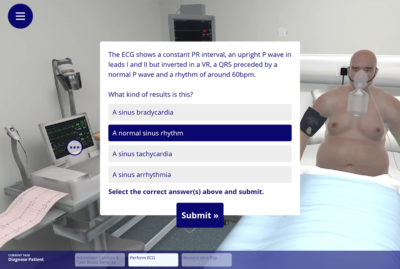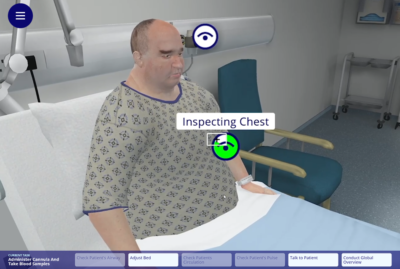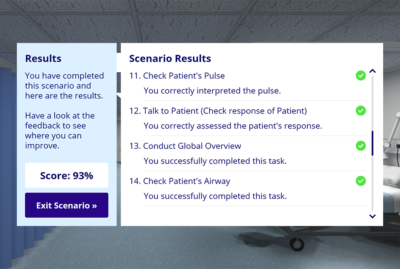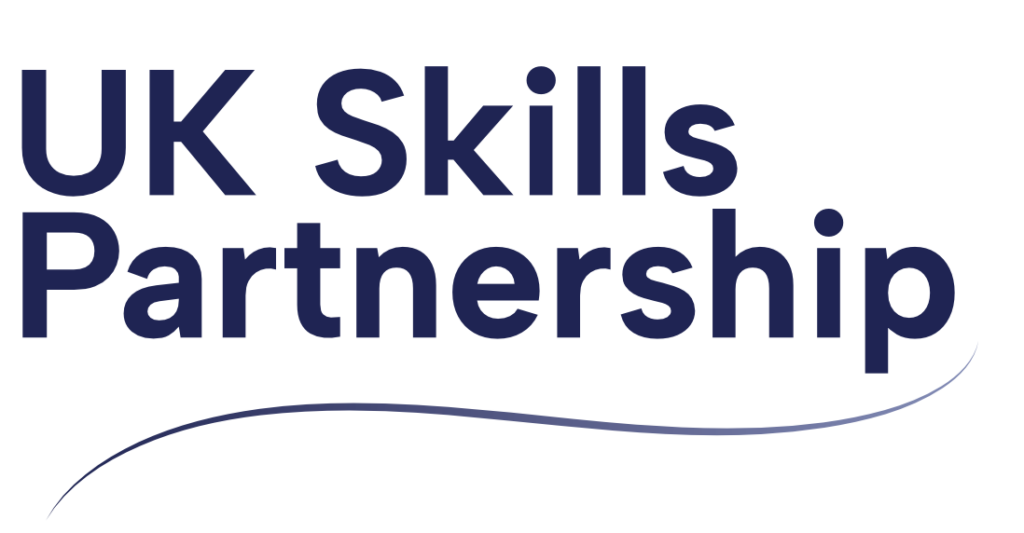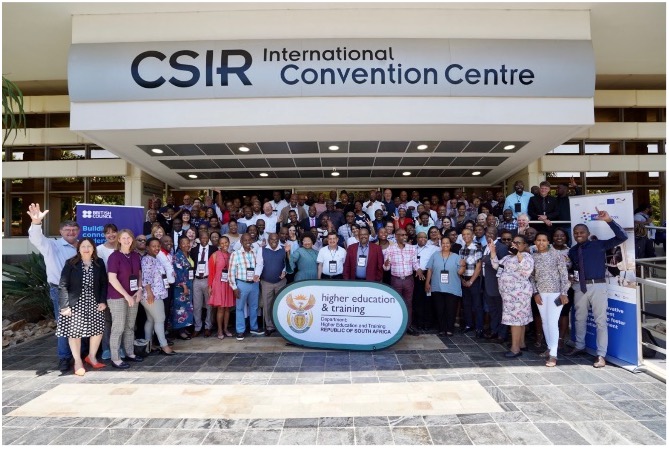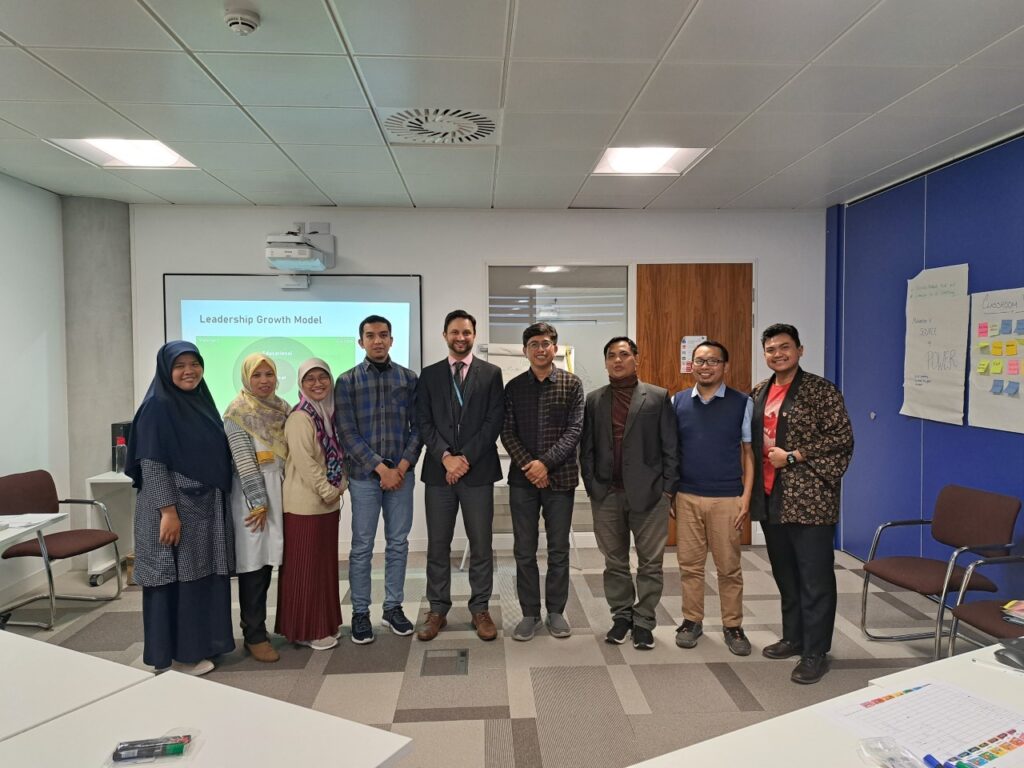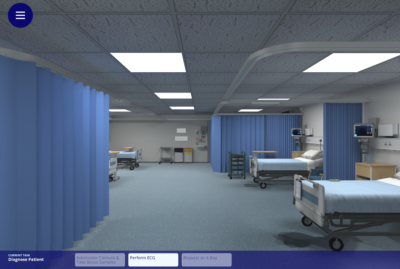
Metaverse Learning enables remote access to quality skills
Summary
Metaverse Learning specialise in shaping the future of learning by developing virtual environment and digital learning solutions driven by the current and future demands from educators, learners and industry.
Metaverse developed a Nursing (Virtual Front Line) programme for a Digital Nursing Consortium which included MX Reality, Interactive Healthcare Training, Robert Gordon University in Aberdeen.
The Nursing (Virtual Front Line) program consists of seven interactive learning modules based on 3D animation, text, audio and Augmented reality. There is also a virtual environment scenario to deploy vital skills training and assessment to the nursing industry. These immersive and interactive experiences provide a vehicle for transfer of knowledge and instillment of best practice processes across a range of subject areas whilst allowing learners to train in a safe environment from any location.
Metaverse’s electrical engineering programme is developed in line with Level 3 qualifications and allows learners to gain knowledge and confidence safely and quickly.
The aim of the programme is to provide underpinning knowledge on certain subjects, a chance to carry out tasks relating to specific scenarios that they might find themselves in and to instil and re-enforce best practice processes that need to be done every time e.g. PPE, safety checks that need to be made. The programme consists of nine interactive learning modules which consists of various media elements including 3D animation and Augmented Reality. There are also two highly interactive virtual environment scenarios set in home environments to train and test the learners’ knowledge in visual inspection and fault diagnostic in home.
Metaverse Learning work with in partnership with our customers to analyse their challenges and define and design solutions that will deliver maximum impact to their users. They offer the following solutions:
• Immersive Virtual Reality Experiences
• Interactive Virtual Environment Scenarios
• Mixed and Augmented Reality
• Performance Learning
Metaverse provide real-life experiences to develop immersive, real-life skills at learner’s own pace – leaving no-one behind. Metaverse programmes are developed in partnership with colleges, universities, awarding bodies, training providers and technologies specialists.
Metaverse are currently developing many other Virtual Reality and Augmented Reality based programs including Construction suite, Health & Social Care, IoT, Civil Engineering, Automotive, Welding & Fabrication, Manufacturing, etc. All programs are available to be licensed to benefit learners around the world.
If you need support with developing learning in virtual environments, please contact Metaverse Learning.
The Covid-19 pandemic has highlighted the challenges of providing relevant and accessible training and assessment to those on the frontline as well as nursing or medical students.
With Metaverse’s partner, they identified that a number of key challenges facing the medical industry at this time:
- Hospitals, medical centres, educational establishments, training venues all suffered with closures or restricted access for learning and training purposes which meant that staff and students didn’t always have the facilities to practice their knowledge and skills in a real world setting or environment.
- Human resources generally used to provide teaching and training services were reduced dues to the requirement for all hands on deck to deal with the strain put on the healthcare system.
- The speed at which it was taking to put together and distribute information about best practice approaches and treatments
In addition to the implications of Covid-19 there is a general skills and workforce gap in the healthcare industry. We understand that:
- The World Health Organisation (WHO) estimates that by 2030 there will be a healthcare workforce gap of 14.5 million
- There’s an estimated 115 thousand vacancies in adult social care in the UK
- Existing workers are stretched to capacity even before Covid-19 and the restrictions this has put in place
- The attrition rate can be as high as 50% on some social care/nursing courses
Based on the challenges faced in the medical industry we saw that there was an opportunity to develop a solution that would:
- Enable workers and students (users) to continue learning remotely using PC/Laptop/Tablets an no requirement for specialist software
- Disseminate information, guidance, best practices about illnesses and treatments to large numbers of medical staff and students
- Help medical staff and students learn or train on new skills to help with the burden placed on the healthcare industry
The virtual environment scenarios provide an interactive experience for the student where they have set tasks and challenges to complete based on a subject areas and situation.
The student can interact with characters, objects and equipment in the environment and use these to solve the challenges and tasks.
Each action the student takes is recorded so progress can be checked. The information is used with the tutor as a learning tool or to assess performance.
By using a virtual scenario, the student can practice processes and procedures and enhance their competency before going into a real situation.
The programme is available to students 24/7/365 through their education provider on:
- A learning providers LMS
- An online portal that they will be able to register for
This means it will be available to them throughout their training to learn, practice or refresh their knowledge whenever they want.
The content within our solution has been put together by subject matter experts and is aligned to UK, National Occupational Standards Levels 3 and 4.
Metaverse Learning’s virtual learning solution is unique as it:
- Provides key underpinning knowledge and training opportunities 24/7/365
- Provides an immersive learning environment
- Simulates real world settings and interactions
- Tackles difficult to teach/practice subject areas (in current situation)
- Has tailored subject content mapped to qualification standards
- Does not require specialist expensive hardware/software like headsets or handsets
- Can be accessed quickly and easily through almost any device
- Saves costs from a time and material perspective
This option has improved and enhanced the learning provision and experience to students. It has enabled learning providers to assess practical skills without having to be in a physical location which reduces risk of COVID-19 infection, saves time by not having to travel and costs for any room/equipment hire.
Experience has demonstrated that delivering virtual scenarios has a higher level of engagement with the learning content and knowledge and assessment rates increase through its use due to repeated interactions and practice with the program. It also instilled best practice processes in areas such as PPE and Cleaning preparation.

